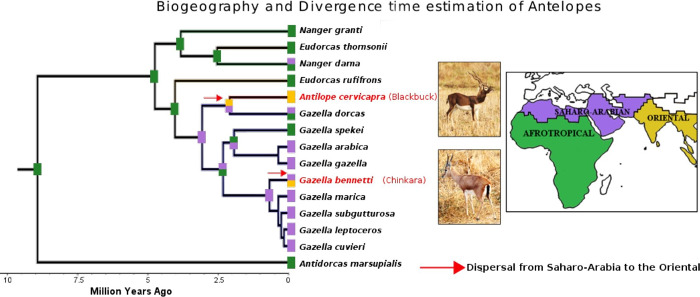New genetic study provides fresh insights into the origin and evolution of the blackbuck
Wed, 2019-08-21 09:35
The striking Antelopes of Asia and Africa have often perplexed scientists with respect to their evolutionary relationships. New research at Prof. Praveen Karanth’s lab at the Centre for Ecological Sciences shows that the Indian antelopes, especially the blackbuck (Antilope cervicapra) lineage, is much younger than previously thought of. The study uses nuclear genetic information to resolve the phylogeny of antelopes and using fossil records, denotes that blackbucks diverged only about 2 million years ago, while the chinkara were even younger. The researchers also speculate how the endemism of the blackbuck was a product of the then-prevailing geographic conditions, including the expansion of grasslands, followed by the formation of the Thar desert. The study also throws light on the importance of the grassland ecosystem, which is essential to the survival of a host of organisms.
Reference:
Jana, A., & Karanth, P. (2019). Multilocus nuclear markers provide new insights into the origin and evolution of the blackbuck (Antilope cervicapra, Bovidae). Molecular phylogenetics and evolution, 106560.
Contact details: ananyajana@iisc.ac.in

Add new comment